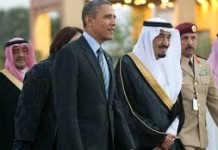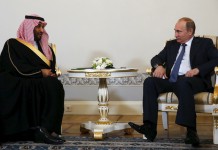Context
 During his visit to Pakistan on Wednesday, Turkish Prime Minister Recep Tayyip Erdogan offered to expand defense cooperation with the country. There are also media reports that Chinese and Turkish fighter jets conducted joint exercises in mid-September, while Israel and American forces were ominously absent. Chinese planes apparently flew over Pakistani and Iranian territory to reach Turkey. Turkey has also been extending its influence in the Middle East, as witnessed during the Flotilla incident. On its part, Pakistan recently shut down one of the supply routes for NATO forces in Afghanistan. Turkey and Pakistan appear to be gradually moving away from a NATO centric foreign policy posture. This article looks at the broader realignment of alliances taking shape in the Islamic world.
During his visit to Pakistan on Wednesday, Turkish Prime Minister Recep Tayyip Erdogan offered to expand defense cooperation with the country. There are also media reports that Chinese and Turkish fighter jets conducted joint exercises in mid-September, while Israel and American forces were ominously absent. Chinese planes apparently flew over Pakistani and Iranian territory to reach Turkey. Turkey has also been extending its influence in the Middle East, as witnessed during the Flotilla incident. On its part, Pakistan recently shut down one of the supply routes for NATO forces in Afghanistan. Turkey and Pakistan appear to be gradually moving away from a NATO centric foreign policy posture. This article looks at the broader realignment of alliances taking shape in the Islamic world.
Analysis
 Turkey and Iran
Turkey and Iran
The first sign of Turkeys shift appeared in January 2009 at the Economic Development Forum held in Davos. Turkish Prime Minister and Israeli President Shimon Peres squared off on matters related to Israel’s aerial bombing campaign of Gaza. The leader of Turkey commented:
“I find it very sad that people applaud what you said. You killed people. And I think that it is very wrong.”
Since then the Turkish and Israeli defense relations have suffered. The ties between the two countries reached a breaking point as a result of the Flotilla incident in May of this year. Israeli’s perceptions of Turkey had altered since Turkey played a leading role in negotiating the nuclear swap with Iran. PoliTact had projected in an earlier analysis,
“the incident may prove to be a nail in the coffin for Turkey’s western-looking orientation, with a shift in policies centering around fellow Muslim nations in the Middle East, as well as Russia and further east to China a distinct possibility.”
For the most part the ties between Turkey and Iran are socio-economic in nature. For example, in October 2009 the two countries signed an agreement for the joint exploration and production of gas from Iran’s South Pars field, with a total investment of $4 billion and a future prospect of Iran becoming a supplier to the Nabucco energy project. An Israeli website had reported at the time that these relations have expanded to include military and intelligence cooperation. The development came at a peculiar time, when Iran remains worried about the threat of an Israeli attack targeting its nuclear installations.
At the same time, Iran and Turkey are also jostling with each other for the limelight in the Middle East. Other Arab nations are becoming increasingly alarmed at the role these two non-Arab nations are playing in the region. Arab-Turkish and Arab-Iranian relations are historically fraught, while Turkish-Iranian relations have been getting warmer, and the Arab states are not at all happy about it. So much so, that according to media reports, Saudi Arabia allowed Israel to use a narrow corridor of airspace over the Kingdom, to better facilitate the bombing of Iranian nuclear installations.
Israel must be looking on aghast at the rise of these two nations in perception in the region, and their growing alliance-although it has not yet made a move to take Saudi Arabia up on its offer of a fly-over corridor for more ‘persuasive’ action against Iran. Furthermore, the developing Turkish-Iranian alliance represents a new Sunni-Shiite bridge-one that Arabs have been unable to create. Analyzing the Flotilla incident, PoliTact had noted in May that the development poses far-reaching consequences for the AfPak conflict in particular and the Islamic world in general. Although Al Qaeda has served the purpose of destruction and fissures in the Islamic world, Israeli attack has caused some sense of unity in the Islamic world, with Turkey taking the lead.
In the game of public perception, the Arab states have appeared more and more pithy, especially when compared with the daring of the Turkish-led flotilla, in stark contrast to the compliant attitudes of the Arab states regarding Palestine-not that the other Arab states don’t care for the Palestinian cause, but their reliance on the US, prevents them from taking any actuating steps against Israel in the name of the Palestinians. This is definitely not the case with Iran, and nor, would it seem, with Turkey.
 Pakistan, Turkey and Iran
Pakistan, Turkey and Iran
In November 2009 Pakistan and Turkey signed the Preferential Trade Agreement (PTA). Furthermore, the trial operation of a freight train service connecting the Pakistani and Turkish capitals via Iran has also begun. The train service is 6,506 kilometers long, 1,900 km of which passes through Pakistan, 2,570 km through Iran and 2,036 km through Turkey.
On the other hand, the Iran-Pakistan relations have gone through some turbulence. Soon after the two countries signed the $7.5 billion Iran-Pakistan Gas Pipeline Project, the deadly Jundallah attack (October 18, 2009) occurred in Iran.
Iran had become increasingly frustrated with Pakistan for not cracking down on Jundallah, a Sunni separatist group whose leadership (Abdol Malek Regi) was believed to be operating from Pakistan, with support from Saudi Arabia, US and UK. India was originally part of the proposed Iran-Pakistan Gas Pipeline project, and dropped out latter due to security concerns for the pipeline passing through Pakistan. However, the relations between the two countries have improved ever since the cooperation provided by Pakistan in the capture of Abdol Malek Regi.
 China and NATO
China and NATO
The mishandling and aggressive posture of NATO alliance in Iraq and Afghanistan, coupled with unconditional US support for Israeli policies in the Middle East, have resulted in moving these Islamic countries closer to each other and China.
At this point PoliTact expects Pakistan and Turkey to progressively move away from NATO Alliance and tilt closer to China. However, the autocratic countries of the gulf region are expected to shift closer to NATO, complicating matters for Pakistan.
As previously pointed out by PoliTact, the pulls and tugs of the Turkish, Persian, and Arab civilizations impact Pakistan and also complicate the solution for Afghanistan. From an Israeli perspective, and setting aside US-Russia-China tussles, any notion of regional synergy developing between Iran, Turkey and Pakistan is a risky proposition.



